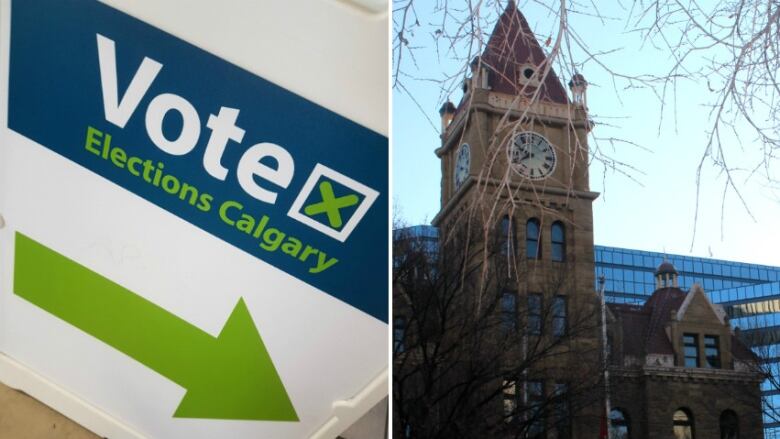Equalization referendum during municipal elections gets panned, except by Farkas
Alberta government's idea not getting lots of votes

The Alberta government's plan to hold a referendum on equalization during municipal elections in October next yearis getting the thumbs down across the board, except for an outspoken Calgary councillor who likes it.
Changes to equalization was one of many recommendations coming out of the province's so-called "fair deal" panel report, which dropped Wednesday, along with creating a provincial police force and an Alberta pension plan.
Canada's equalization program is a way for the federal government to transfer funds to provinces so that every Canadian, no matter where he or she lived, would receive comparable services at comparable rates of taxation. A Canadian living in a smaller province with a weaker economy would have access to the same public services as one living in a fiscally stronger province, without their tax rates having to go through the roof.
Alberta Premier Jason Kenneysupported the current program when it was last adjusted in 2009 by Stephen Harper's Conservative government, of which Kenney was a cabinet minister.
But piggybacking the equalization referendum onto local elections is not winning a lot of votes.
'Drown us out'
The president of the Alberta Urban Municipalities Association says it would be combining two entirely different things and both would lose.
"It would just drown us out. There is no other way to put it," said Barry Morishita, who is also the mayor of Brooks.
"It would just drown out the people running on local issues for local consideration. There would be no other discussion except what's on that referendum."
- Fair deal panel report underlines challenges for Kenney when rhetoric meets reality
- Alberta government to study independent police force in response to fair deal panel report
Morishita says merging issues from two levels of government could be distracting.
"There are serious issues that the premier speaks about and they deserve their own place, and so they should be held separately so Albertans can concentrate on those important questions," he said.
"Imagine a scenario where a candidate is using that issue to get elected municipally, although it's not even a municipal issue. That doesn't seem fair."
'Disrespectful to citizens'
The mayor of Calgary says it's more than unfair.
"I think it is disrespectful to citizens who want to vote in their local elections to have their local elections the coverage of them as well as the voter turnout influenced by non-local issues," Naheed Nenshi said.
"Local elections are the one time every four years that citizens get a chance to really focus on their city councillor and on their mayor and what they want for that."
Nenshi joked that Calgary could have its own plebiscite on whether it gets a fair deal within Alberta, adding Calgary gives $5 billion more to the province than it gets in provincial spending.
A Calgary councillor says aligning an equalization referendum with a municipal election would actually be combining three levels of government.
"I think it's a bad idea," Druh Farrell said.
"It dilutes the conversation that we need to have as a city. Calgarians want a council that focuses on city issues, like transit and roads and policing and housing and getting the economy back on track, not a provincial dispute with the federal government."
'Good idea'
Another councillor, however, says go for it.
Jeromy Farkas says voters don't make the same distinctions as politicians.
"I think that for a number of good reasons, including the cost savings, it's a good idea to be asking this question at the same time as a municipal election."
2 conversations going on
A political scientist, Lisa Young, says there are two problems with the idea.
Firstly, people who might vote municipallymay not be the same voters attracted to a provincial or federal issue.
"There are going to be two conversations going on at the same time," Young said.
And it also would require downloading the voting responsibilities from the province to local communities.
"If this is a vote that the premier thinks is important, maybe it's important enough to get the provincial election office to run it."
Government says it saves money
Aspokesperson for the Ministry of Municipal Affairs says aligning a provincial referendum with municipal elections is common practice in North America.
"It saves time and money, and leads to increased voter participation, which is a good thing. Holding a referendum at a separate time would cost tens of millions of extra dollars," Tim Gerwing said.
The next election for municipalities in Alberta is Oct. 18, 2021.
With files from Scott Dippel, Elise von Scheel and Mark Gollom












_(720p).jpg)


 OFFICIAL HD MUSIC VIDEO.jpg)
.jpg)



























































































